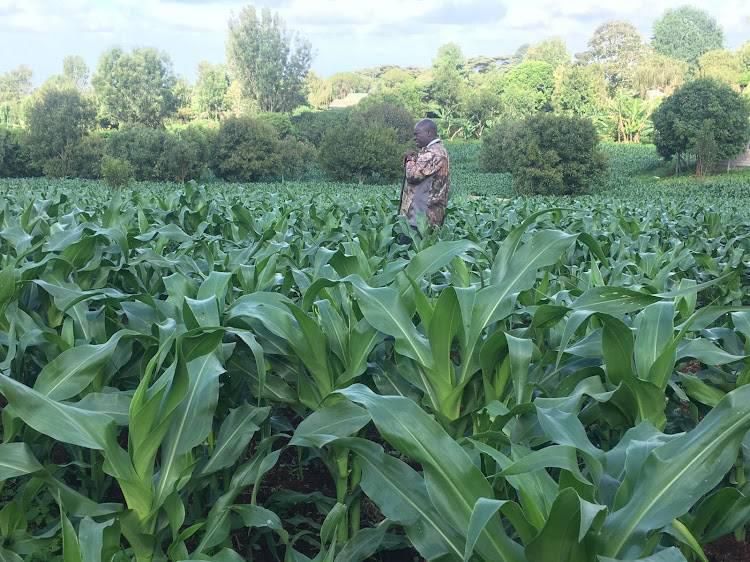Unearthing Prosperity: The Agricultural Tapestry of Northern Ghana
Discover the vibrant world of farming in Northern Ghana, where tradition and innovation cultivate the seeds of growth.
Agriculture in Northern Ghana
Dive Deeper into Farming Practices
Join us as we explore the sustainable techniques and challenges faced by Northern Ghana’s farmers.
Introduction to Northern Ghana's Farming
Nurturing Growth: Exploring Farming in Northern Ghana
Nestled in the savannah region of West Africa, Northern Ghana boasts a vibrant agricultural landscape that has sustained communities for generations. With its fertile soils and favorable climate, farming is not just a livelihood but a way of life here. In this article, we delve into the intricacies of farming in Northern Ghana, exploring its techniques, challenges, and the resilience of its farmers.
Rich Agricultural Heritage
Traditional Practices and Crops
Agriculture forms the backbone of the Northern Ghanaian economy, employing a significant portion of the population. Traditional crops like millet, rice, soya beans, cowpeas, sorghum, maize, and yams have been cultivated for centuries, with farming practices passed down through generations. The region’s agricultural heritage is deeply intertwined with cultural practices and beliefs, fostering a strong connection between the people and the land.
In Northern Ghana, farmers employ a variety of sustainable farming techniques suited to the local environment. Agroforestry, for instance, involves intercropping trees with food crops, while improving soil fertility and moisture retention. Another common practice is conservation agriculture, which minimizes soil disturbance and promotes crop diversity to enhance resilience to climate variability.
Despite its agricultural prowess, Northern Ghana faces numerous challenges that threaten farming livelihoods. Erratic rainfall patterns, soil degradation, and pest infestations pose significant obstacles to crop production. Additionally, limited access to modern farming inputs and infrastructure exacerbates these challenges. However, the resilience of Northern Ghanaian farmers shines through as they adapt traditional knowledge with modern innovations to overcome these hurdles.
Sustainable Farming in Northern Ghana
In the heart of Northern Ghana, farmers are embracing sustainable agricultural practices that not only preserve the natural environment but also enhance their farming yields. Agroforestry, a prominent technique in the region, involves integrating trees with crop and livestock farming, thereby creating a biodiverse ecosystem that supports various forms of life. This method significantly improves soil fertility and moisture retention, crucial for crops in the semi-arid zones of the north.
Another key practice is conservation agriculture, which focuses on minimal soil disturbance, permanent soil cover, and diversified crop rotation. This approach helps in maintaining soil structure and nutrients, reducing erosion, and increasing water efficiency, making it highly relevant in the face of fluctuating climatic conditions. Together, these practices not only support sustainable farming but also secure the livelihoods of future generations in Northern Ghana.
Challenges Facing Northern Ghana's Farmers
Despite the rich agricultural heritage of Northern Ghana, farmers face significant challenges that threaten their livelihoods. One of the most pressing issues is the erratic rainfall patterns that disrupt the growing seasons and affect crop yields. This unpredictability makes farming a risky endeavor in the region.
Soil degradation is another critical challenge, with continuous cultivation depleting the nutrients necessary for crop growth. This issue is compounded by limited access to modern farming inputs like fertilizers and seeds, which could otherwise help mitigate some of the negative impacts of soil exhaustion.
However, the resilience of Northern Ghanaian farmers is evident as they leverage traditional knowledge and community support to adapt and overcome these obstacles. Their persistence in the face of adversity not only sustains their families but also contributes to the stability of the region’s food supply.
Community and Cooperation
The Heart of Farming in Northern Ghana
Farming in Northern Ghana transcends individual effort and is deeply rooted in community collaboration. During peak agricultural seasons, it’s common to see farmers sharing resources such as tools, seeds, and labor. This communal approach not only fosters strong relationships among community members but also enhances the efficiency and output of agricultural activities.
Community-based organizations and cooperatives play a pivotal role in this system. They provide critical support services including access to credit, agricultural inputs, and training. These groups are instrumental in strengthening the community’s farming capabilities, ensuring that farmers are not only recipients of aid but also active participants in their own development.
Government Support for Agriculture
In an effort to bolster agricultural productivity, the government of Ghana has launched several initiatives, notably the ‘Planting for Food and Jobs’ program. This initiative provides farmers with subsidized seeds and fertilizers, aiming to enhance food security and reduce import dependency. Additionally, significant investments have been made in developing irrigation systems, which are crucial for stabilizing crop yields amidst fluctuating rainfall patterns.
Enhancing Farming Infrastructure
Understanding the critical role of infrastructure in agriculture, the government has also focused on improving rural infrastructure to support farmers in Northern Ghana. This includes the construction of roads to facilitate easier access to markets, and the establishment of agricultural research centers that help disseminate modern farming techniques and practices among the local farming communities.
Extension Services and Training
To further support the farming community, the government has expanded extension services, providing training and advice to farmers. These services are vital for introducing sustainable farming practices and technologies that can lead to increased agricultural productivity and better quality of life for farmers in Northern Ghana.
Sustainable Farming: The Path Forward
Strategies for Future Farming Success in Northern Ghana
The Essence of Farming in Northern Ghana
A Vision of Prosperity Through Sustainable Practices

